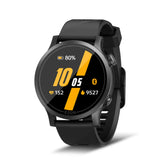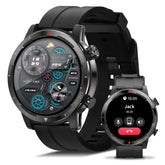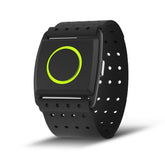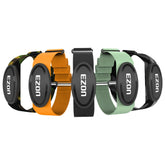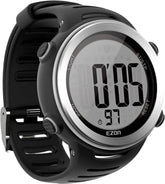The Complete Guide to Race Day Nutrition and Hydration
Race day performance hinges on more than training—it’s about fueling your body correctly before, during, and after the event. Whether you’re tackling a marathon, triathlon, or 10K, strategic race day nutrition and hydration strategies can enhance endurance, prevent bonking, and speed up post-race recovery. In this guide, we’ll break down expert advice for every stage of your race journey, from pre-race meals to post-finish line recovery.
1. Pre-Race Nutrition: Fuel Your Tank Strategically
A. 3–7 Days Before the Race: Carb Loading
- Goal: Maximize glycogen stores in muscles and liver (each gram of carb holds 3g water, so expect slight water weight gain).
-
How to Do It:
- Increase carbs to 6–10g/kg body weight daily (e.g., 400–600g for a 70kg athlete).
- Focus on marathon nutrition staples like oatmeal, sweet potatoes, and quinoa—avoid high-fiber foods to prevent gut issues.
B. The Night Before: Timing Matters
- Dinner: Eat 3–4 hours pre-bed to allow digestion. Opt for easily digestible carbs (pasta, rice) + lean protein (grilled chicken, tofu) + minimal fat / 纤维 (no fried foods or raw veggies).
- Example: Spaghetti with turkey meatballs and a side of steamed spinach.
C. Race Morning: The Critical 2–3 Hours
-
Pre-Race Meal: Eat 2–3 hours before start time to avoid running on a full stomach.
- Carbs: 1–2g/kg body weight (e.g., 70–140g for 70kg: 2 slices of toast + banana + honey).
- Avoid New Foods: Stick to tried-and-tested options to prevent stomach upsets.
- Hydration: Drink 500ml water/electrolyte drink 1 hour pre-race; add a pinch of salt for sodium.
2. Race Day Hydration: Balance Water and Electrolytes
A. During the Race: Sip Smartly
- Hydration Rate: 300–600ml/hour, adjusted for sweat loss (weigh yourself pre/post-run; drink 16oz for each pound lost).
- Electrolytes: Sodium (500–1,000mg/hour), potassium (200–300mg/hour) to prevent cramps and hyponatremia (low sodium).
-
Drink Choice:
- Short Races (10K–Half Marathon): Water + 1 gel/hour (20–30g carbs).
- Long Races (Marathon/Triathlon): Sports drink (15–20g carbs/100ml) or gels + water, alternating every aid station.
B. Common Hydration Mistakes to Avoid
- Overhydration: Drinking too much water without sodium can lead to dangerous electrolyte imbalances.
- Underhydration: A 2% body weight loss from sweat reduces performance by 10%.
3. In-Race Nutrition: Fuel for Sustained Energy
A. Carb Intake by Race Distance
- 10K–Half Marathon (1–2.5 hours): 30–60g carbs/hour (1–2 gels, or 1 energy bar).
- Marathon (2.5–4 hours): 60–90g carbs/hour (3 gels + sports drink).
- Triathlon/Ironman (4+ hours): 90–120g carbs/hour (gels, energy chews, or real food like dates/bananas).
B. Timing Your Fuel
- First Gel: 30–45 minutes into the race, then every 45–60 minutes thereafter.
- Liquid vs. Solid Fuel: Use gels for convenience; solids (like a PB&J sandwich) for races over 3 hours, but practice chewing while moving.
C. Triathlon-Specific Tips
- Swim to Bike Transition: Have a gel ready immediately after exiting the water—digestion is harder on the bike, so start fueling early.
- Bike to Run Transition: Finish fueling 30 minutes before starting the run to avoid side stitches.
4. Post-Race Recovery: Repair and Replenish
A. The Golden Hour: Refuel Rapidly
- Carbs: 1.5g/kg body weight within 30 minutes (e.g., 105g for 70kg: chocolate milk + oatmeal cookies).
- Protein: 0.3–0.4g/kg body weight to kickstart muscle repair (e.g., 20–30g: Greek yogurt + whey protein).
- Hydration: Drink 500ml electrolyte-rich fluid (add salt to water if no sports drink available).
B. 2–4 Hours Post-Race: The Main Recovery Meal
- Focus on: Lean protein (salmon, eggs), complex carbs (quinoa, rice), and anti-inflammatory foods (berries, spinach).
- Example: Grilled chicken salad with quinoa, avocado, and a side of pineapple (natural anti-inflammatory).
C. 24–48 Hours Post-Race: Prioritize Rest and Nutrition
- Sleep 7–9 Hours: Critical for immune system recovery—use a heart rate monitor to track deep sleep stages.
- Continue Hydration: Aim for 3–4L water daily, with electrolytes if still sore.
5. Nutrition Strategies for Specific Events
A. Marathon Nutrition
- Avoid Fiber: Skip high-fiber foods 24 hours pre-race to prevent bathroom breaks mid-race.
- Practice Fueling: Do a “dress rehearsal” during your last long run to test gel/fluid tolerance.
B. Triathlon Tips
- Bike Leg Fueling: Use a bento box for easy access to gels/chews; practice opening packages while riding.
- Run Leg Hydration: Walk through aid stations to drink safely—spilling costs more time than a 10-second walk.
C. 10K/5K Races
- Pre-Race Meal: Eat 1–1.5 hours before—opt for simple carbs (a banana + honey) to avoid heavy digestion.
- In-Race Fuel: Only necessary for slower runners (over 1 hour); focus on hydration instead.
6. Common Nutrition Myths Debunked
- “I need to load up on protein pre-race” – No, carbs are king for glycogen stores; protein is more important post-race.
- “Drink as much as possible to avoid dehydration” – Overhydration is dangerous; drink to thirst and replace electrolytes.
- “New foods won’t affect me on race day” – Always test nutrition in training to avoid gut issues.
Gear to Enhance Race Day Nutrition Planning
1. GPS Sports Watch
- Track Sweat Loss: Weigh yourself pre/post-training to calculate race-day hydration needs.
- Pace Alerts: Ensure you’re on schedule to hit nutrition/hydration checkpoints.
2. Hydration Pack/Vest
- Marathon/Triathlon: Use a 2L vest (e.g., Salomon Agile) for hands-free hydration during long races.
3. Portable Nutrition Kit
- Race Belt: Carry gels/chews in a stretchy belt (FlipBelt) for easy access without bouncing.
Final Race Day Checklist
| Timing | Nutrition/Hydration Action |
|---|---|
| 2 Days Out | Start carb loading (6g/kg body weight), hydrate well. |
| Night Before | Eat early dinner (pasta + lean protein), sleep 7+ hours. |
| 2 Hours Pre | Eat carb-rich meal, drink 500ml electrolyte water. |
| During Race | Follow carb/hydration plan, use aid stations strategically. |
| Immediately Post | Drink chocolate milk, eat a banana within 15 minutes. |
Fuel Your Race to Perfection
Race day nutrition and hydration are the unsung heroes of performance—get them right, and you’ll unlock levels of endurance and recovery you didn’t know possible. Whether you’re chasing a marathon PR or finishing your first triathlon, remember: consistency in training your nutrition plan is as important as training your legs.
Use these strategies, pair them with a reliable sports watch to track effort and recovery, and step to the start line confident that your body is fueled for success. The finish line is just the beginning—train your nutrition, race with purpose, and recover stronger than ever.
